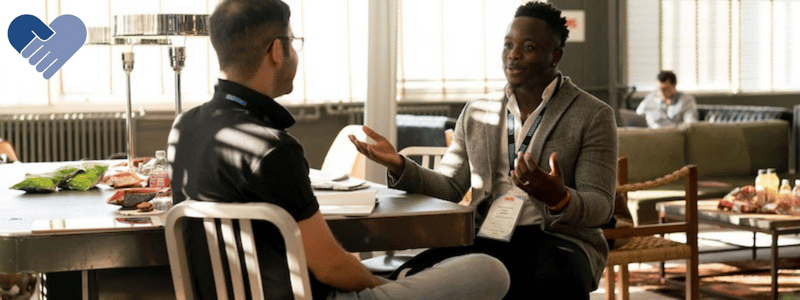Search by category, archive or keyword

Speeches and “the talk” rarely move the substance user through the stages of change.
Talking to a substance user often only provides the family with hope things will change and the substance user with the feeling they have bought themselves some more time. Families and friends of drug addicts and alcoholics would benefit much more if they were to focus on the feet of the substance user rather than their lips.
The drug addict and their family are the least qualified people to be discussing solutions and strategies. The substance user is often only in a position to manipulate, promise false hope and seek shortcut-riddled solutions. The family is equally in the mindset of clinging to the false promises of the conversation.
In the rare event the substance user approaches the family and asks for help, it would be an appropriate time for the family to turn over the decision-making to a third-party professional. It is often unwise for the impaired substance user and the flooded family to formulate a solution or strategy by themselves. This is not to say that every conversation is doomed.
Our message is to allow professionals to moderate the conversations. Nobody emotionally attached to the conversation is going to get farther than an unbiased non emotionally attached professional. They are able to see much more from the balcony as opposed to the stage where the family and substance user is talking things out.
Addiction is a Medical Problem
The Diagnostic and Statistical Manual (DSM) classifies Substance Use Disorder as a brain disorder and a mental illness.
The American Society of Addiction Medicine (ASAM) states addiction is a medical disease that is treatable.
Alcoholics Anonymous concedes to alcohol consumption as being a phenomenon of craving.
What these all have in common is they all believe it is a treatable problem that requires guidance from someone other than the alcoholic or addict and their families. Some things for families to consider in regard to addiction:
- Substance use/Alcohol Use Disorders: These are chronic, progressive, and potentially fatal problems. It’s common for substance use disorder clients also to have a dual diagnosis or co-occurring disorder. This means there is a mental health diagnosis along with substance use. The goal for any clinician or physician is to determine best if and how substance use is contributing to mental health symptoms and diagnosis. Equally, are mental health concerns causing the substance use disorder?
- Addiction is a progressive disease: It is not uncommon for a substance user to not know why they use drugs or alcohol. They often find it impossible to stop themselves from using substances, and once they start, they find they can not stop on willpower or good judgment. It is also very common for a substance user to explain that their lives and mental health have become progressively worse with continued substance use; things become worse and never better.
- Substance Abuse Disorders are treatable: Although there is no cure for guaranteed abstinence from drug or alcohol use, there are effective methods that help those in need achieve long-term sobriety. There are several evidence-based treatment solutions that are proven effective. Some of the most common are 12 Step Facilitation and Behavioral Couples Therapy (BCT). Anytime the substance user can address their behaviors and their perception that lead to substance use, they are better equipped to remain abstinent and sober. When the family is involved in the substance user’s treatment plan and is involved in their own addiction recovery, this can also increase the opportunity for the substance user to achieve long-term clean time or sobriety.
Unfortunately, not everyone will completely surrender and familiarize themselves with recovery options that are effective. Many substance users often try to beat the addiction themselves, taking their families along with them.
An effective first step for families is to enter a recovery program themselves and learn new ways to look at and cope with their loved one’s addiction.
Substance users often choose the perceived path of least resistance. An enabling and codependent family can provide encouragement in the wrong direction. Changing the family often leads the substance user to move through the necessary stage of change to enter recovery.
Talking to a Loved One About Addiction or Substance Use Disorder
It is recommended a family concede to professional guidance before attempting any conversations with a substance user. It is extremely rare for someone to be able to control or change a substance user via direct conversation; it often requires actual changes within the family system.
Families often believe they are powerless over their loved one and can do nothing other than wait for them to want help or hit bottom. Here are some things a family can do that can encourage the substance user to consider change and enter recovery:
- Respect their decision and ask them to respect yours: Your loved one has a right to use substances. You have an equal right not to assist them. Families often enable and are codependent. Other times families may feel they are helping their loved one and are ultimately hurting them by supporting their addiction and behaviors. Families are allowed to change their approach. The substance user may be upset and remember you’re not telling them what to do, you’re letting them know what you will be doing differently. If they would like to enter treatment, then you help them. If they do not want help, then it would be beneficial to refrain from behaviors or actions that encourage continued substance use.
- Never tell them what they need to do: Not many people like being told what to do; even more so a substance user. Many families make the mistake of telling their loved one what they should do or what they need to do. As soon as you start the conversation off this way, you not only put the substance user on the defensive, but you also shut off their ability to listen to anything else you say. It is not as easy as one would think to communicate effectively with a substance user. This is one of many reasons why DIY interventions are unsuccessful.
- Set Boundaries and Hold Them Accountable: This may not seem like a conversation, and yet it is the best form of communication. By the time a family is reading this, they are probably aware that conversations with the substance user have little to no effect. If your loved one is unwilling to seek effective help, it may be due to their current comfort level as a result of enabling and codependency. By changing the family’s actions, you allow the substance user to look at things from a different perspective. Setting boundaries and allowing the substance user to feel the results of their actions is an effective way to help them see the need for change. If every negative decision they make is somehow made better by someone else, how will they see the need to do something differently? Setting boundaries is helpful for families to allow themselves separation from the destructive behaviors of the substance user. There was a time when you were able to say no; why is it so difficult now?

Helping You and Your Loved One Find a Path to Recovery
Addiction is not a victimless crime, it affects anyone and anything in its path. Substance users can have a far greater chance of achieving sobriety when they are held accountable.
Families who enter recovery and change their behaviors can have a positive impact on the substance user’s recovery as well. Any time only one side addresses the problems, it leaves vulnerabilities and unanswered questions and concerns that are often breeding grounds for relapse.
The substance user has many resentments at their family that eventually need to be addressed. The family equally has resentments and often engages in unhealthy behaviors that comfort the substance user.
Addressing the entire family system is an effective way to help all of those affected by addiction. Because the family system is such a vital component of the overall recovery process, a DIY intervention that does not address this and only involves a talk with the substance user often only produces short-term results if any at all.
An intervention is not about how to control the substance user; it is about how to let go of believing you can.
“The most formidable challenge we professionals face is families not accepting our suggested solutions. Rather, they only hear us challenging theirs. Interventions are as much about families letting go of old ideas as they are about being open to new ones. Before a family can do something about the problem, they must stop allowing the problem to persist. These same thoughts and principles apply to your loved one in need of help.”
Mike Loverde, MHS, CIP




